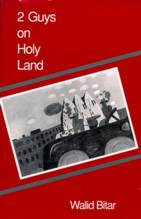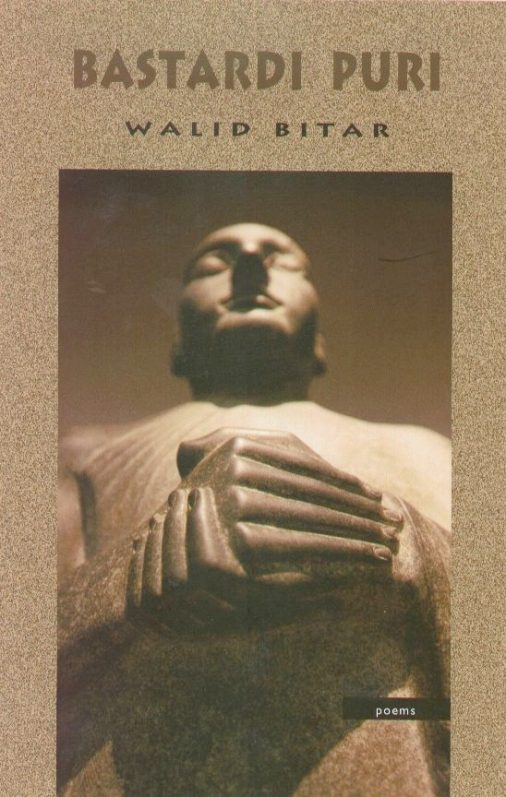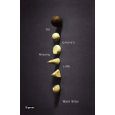

Poetry
2 Guys on Holy Land
Middleton, CT: Wesleyan University Press ; Distributed by University Press of New England, 1993.
Publisher’s Synopsis (from its website)
The poetry of Walid Bitar is a bracing antidote to the decorous meditations and maudlin confessions of much of modern American poetry. Sharp, engaged, and darkly funny, Bitar’s poetry explores the conflicts and tensions inherent at the intersection of traditional Western modes of thought with modern geopolitical realities. In his first collection, Bitar employs a supple language in a bitingly satiric mode.

Poetry
Bastardi Puri
Erin, Ont.: Porcupine’s Quill, 2005.
PS8553 .I87755 B37 2005
Publisher’s Synopsis (from it’s website)
Walid Bitar’s poems read as if transmitted in softly staccato impulses from some remote time-warp in the tenth dimension. They crackle with the static of unique ciphers hurled over huge distances and we don’t know at first whether they are entreaties or imprecations. Certain poems threaten, others cajole; all buzz with an energy of language that sometimes splits open the husks of their forms. Weird images and weirder personages perch upon his stanzas, not only Rhodesian Ridgebacks in constitutional snits, Actaeons ogling Diana’s physique, and Tarzan in quicksand but the poet himself, weirdest of all, whose remarkable voice plots constellations and libels the starry nights.
Poetry
Divide and Rule
Toronto: Coach House Books, 2012.
PS8553 .I87755 D58 2012
Publisher’s Synopsis (from it’s website)
In Divide and Rule, Walid Bitar delivers a sequence of dramatic monologues, variations on the theme of power, each in rhymed quatrains. Though the pieces grow out of Bitar’s personal experiences over the last decade, both in North America and the Middle East, he is not primarily a confessional writer. His work might be called cubist, the perspectives constantly shifting, point followed by counterpoint, subtle phrase by savage outburst. Bitar’s enigmatic speakers are partially rational creatures, have some need to explain, and may succeed in partially explaining, but, in the end, communication and subterfuge are inseparable – must, so to speak, co-exist.

Poetry
The Empire’s Missing Links
Montreal: Signal Editions, Vehicule Press, 2008.
PS8553 .I87755 E46 2008
Publisher’s Synopsis (from its website)
… explores a world where language is never simple, where the most ordinary words are weapons used against us in the play for private and public power. Resembling a series of unflinchingly ambivalent, and often jarringly enigmatic, history lessons, Bitar’s new poems are rich in original observations about our contemporary unease. The effect, in the end, is of a single wandering monologue, its 21st century sense of crisis encoded in unpredictable quatrains whose evasiveness is always in step with lapidary plainness and metaphorical surprise. The Empire’s Missing Links is Bitar’s darkest, most daring book yet.

Poetry
Maps With Moving Parts
Ilderton, Ont.: Brick Books/Coldstream, 1988.
Publisher’s Synopsis (from its website)
As the title suggests, Walid Bitar understands shift and change-literally in the rifts between Lebanon and adoptive Canada-and aesthetically, through a dazzling range of linguistic moves that place him among the most exciting of poet experimenters.
Links
Publisher Brick Books
Publisher Coach House Books
Publisher Porcupine’s Quill
Publisher Vehicule Press
Publisher Wesleyan University Press
